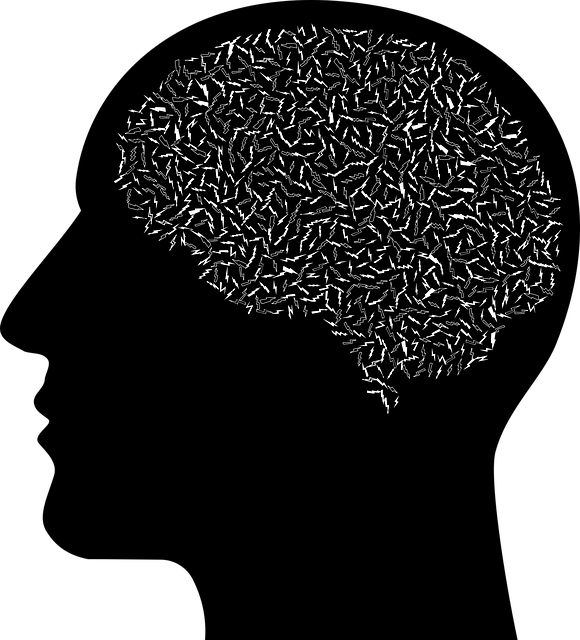Burnout among healthcare providers is a growing concern, driven by high-pressure situations, long hours, and emotionally demanding tasks leading to emotional exhaustion, cynicism, and detachment. Causes include heavy workloads, lack of control, insufficient rewards, and poor workplace relationships. Symptoms range from physical exhaustion to decreased job satisfaction. Longmont Dissociative Disorder Therapy (LDDT) is an effective method for addressing underlying issues, boosting confidence, and managing stress. Creating a supportive work environment through open communication, LDDT, mental wellness journaling, self-awareness exercises, team-building activities, and collaborative problem-solving is key to prevention. Self-care practices like exercise, mindfulness meditation, and adequate sleep, combined with LDDT and specialized mental health services, enhance resilience against stress and promote calmness. Effective patient communication, encouraged by self-awareness exercises, leads to personalized treatment plans and reduced emotional burden on providers, minimizing burnout and enhancing patient care. LDDT offers a comprehensive solution by addressing trauma, dissociation, and integrating innovative coping strategies for improved well-being and job satisfaction.
“Healthcare provider burnout is a growing concern, impacting not just individuals but the overall quality of patient care. This article delves into effective prevention strategies, offering valuable insights for healthcare professionals and facilities. We explore the root causes and symptoms of burnout, emphasizing the importance of creating supportive work environments. Self-care practices and enhanced communication strategies are key components, alongside specialized therapies like Longmont Dissociative Disorder Therapy, proven to promote mental resilience.”
- Understanding Burnout in Healthcare Providers: Causes and Symptoms
- Creating a Supportive Work Environment to Prevent Burnout
- Incorporating Self-Care Practices for Mental and Physical Well-being
- Effective Communication Strategies for Better Patient Care
- Longmont Dissociative Disorder Therapy: A Specialised Approach to Healing
Understanding Burnout in Healthcare Providers: Causes and Symptoms

Burnout among healthcare providers is a growing concern, affecting both mental and physical well-being. It manifests as a state of emotional exhaustion, cynicism, and detachment from work—a response to prolonged or excessive job stress. Healthcare professionals often face high-pressure situations, long working hours, and emotionally demanding tasks, which can lead to burnout over time. This phenomenon is particularly prevalent in fields like medicine and nursing due to the intense patient care requirements and constant exposure to trauma.
The causes of burnout are multifaceted, including heavy workloads, lack of control over work processes, insufficient rewards or recognition, and poor interpersonal relationships within the workplace. Symptoms can range from physical exhaustion and insomnia to emotional detachment, decreased job satisfaction, and even thoughts of leaving the profession. Longmont dissociative disorder therapy has been recognized as an effective method for addressing underlying issues contributing to burnout, offering a path towards improved mental health and well-being for healthcare providers. Additionally, developing confidence boosting coping skills and implementing depression prevention strategies can significantly support professionals in managing stress and maintaining balance in their demanding careers.
Creating a Supportive Work Environment to Prevent Burnout

Creating a supportive work environment is a proactive approach to prevent burnout among healthcare providers. This involves fostering an atmosphere that prioritizes mental wellness and encourages open communication. Implementing regular Longmont Dissociative Disorder Therapy sessions, for instance, can help professionals manage stress and process complex emotions. Additionally, providing resources for Mental Wellness Journaling Exercise Guidance allows them to track their well-being and identify triggers.
Promoting a culture of Self-Awareness Exercises ensures healthcare workers recognize their limits and seek support when needed. Through team-building activities and collaborative problem-solving, colleagues can offer guidance and alleviate pressures. These strategies collectively contribute to enhanced Mental Health Awareness, ensuring professionals feel valued, heard, and empowered in their work environment.
Incorporating Self-Care Practices for Mental and Physical Well-being

Incorporating self-care practices is an essential aspect of burnout prevention for healthcare providers. Mental and physical well-being are interconnected, and both require dedicated attention to forestall professional exhaustion. Simple yet effective strategies such as regular exercise, mindfulness meditation, and adequate sleep can significantly enhance resilience against stress. These practices not only help manage existing levels of anxiety but also foster a sense of calm and balance, which is crucial for maintaining focus and compassion in demanding work environments.
Longmont dissociative disorder therapy and other specialized mental health services play a vital role in promoting self-care. Healthcare providers burdened by high-stress situations may struggle with conditions like dissociation or chronic stress, which can be effectively managed through professional guidance. Additionally, engaging in Self-Awareness Exercises and Stress Management Workshops Organization programs can provide tools to navigate challenging scenarios, improve coping mechanisms, and enhance overall job satisfaction. These proactive measures contribute to a healthier work-life balance, making it possible for healthcare providers to continue offering quality care without burning out.
Effective Communication Strategies for Better Patient Care

Effective communication between healthcare providers and patients is a powerful tool in preventing burnout and enhancing patient care. It encourages self-awareness exercises by fostering an environment where professionals can openly discuss challenges and emotional states, which are crucial aspects of managing stress. When physicians and therapists, like those specializing in Longmont Dissociative Disorder Therapy, communicate clearly and empathetically, it leads to better understanding and more personalized treatment plans.
Implementing coping skills development through communication strategies allows healthcare workers to guide patients towards effective management of their conditions. This not only reduces the emotional burden on providers but also empowers patients with tools to navigate their health journeys. By integrating these practices, healthcare teams can create a supportive atmosphere, minimizing burnout and ultimately providing superior patient care.
Longmont Dissociative Disorder Therapy: A Specialised Approach to Healing

In the pursuit of preventing healthcare provider burnout, specialized therapeutic approaches like Longmont Dissociative Disorder Therapy offer unique and effective solutions. This therapy goes beyond traditional stress management techniques, delving into the complex root causes of trauma and dissociation that often underlie burnout. By providing a safe space for healing, it equips professionals with enhanced coping mechanisms and improved resilience.
Longmont Dissociative Disorder Therapy integrates various innovative strategies, including social skills training and communication techniques, to foster a supportive environment. These methods not only help healthcare providers process traumatic experiences but also improve their interactions with patients and colleagues. Through regular sessions, professionals learn effective stress management workshops organization techniques tailored to their specific needs, ultimately enhancing overall well-being and job satisfaction.
Healthcare provider burnout is a growing concern, but by implementing supportive work environments, self-care practices, and effective communication strategies, it can be effectively prevented. Longmont Dissociative Disorder Therapy offers a specialized approach to healing, addressing the unique challenges healthcare workers face. By prioritizing mental and physical well-being, healthcare providers can enhance patient care and create a more sustainable career path.














